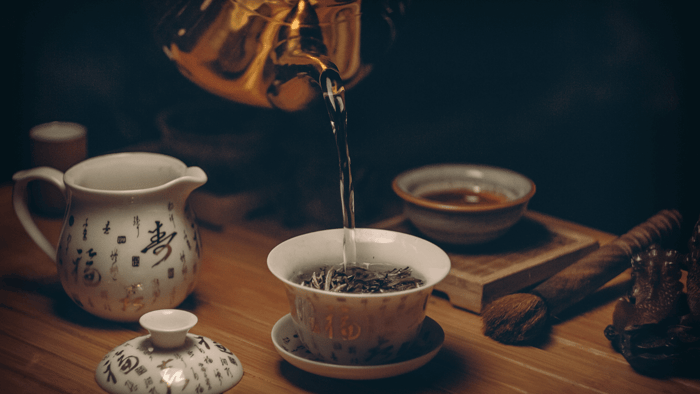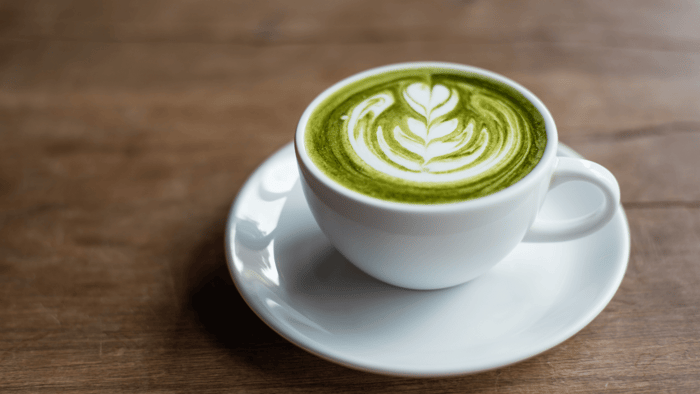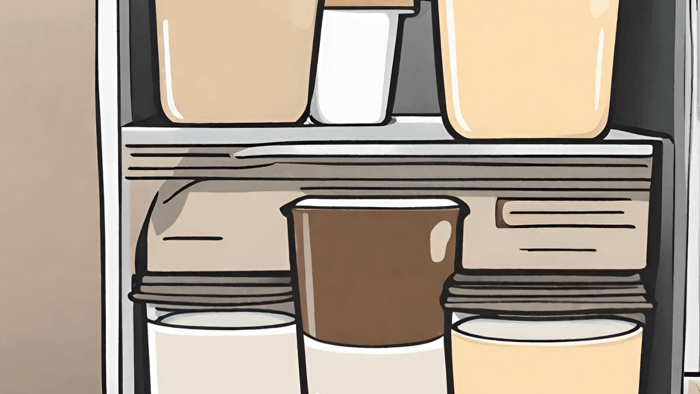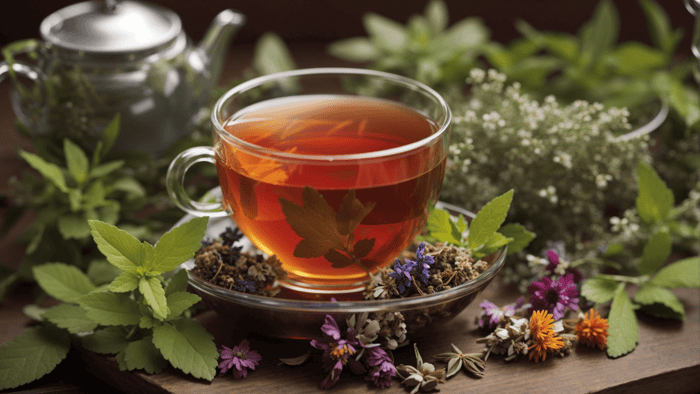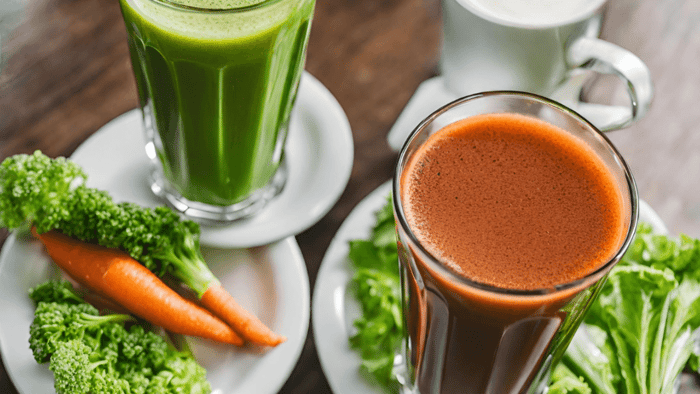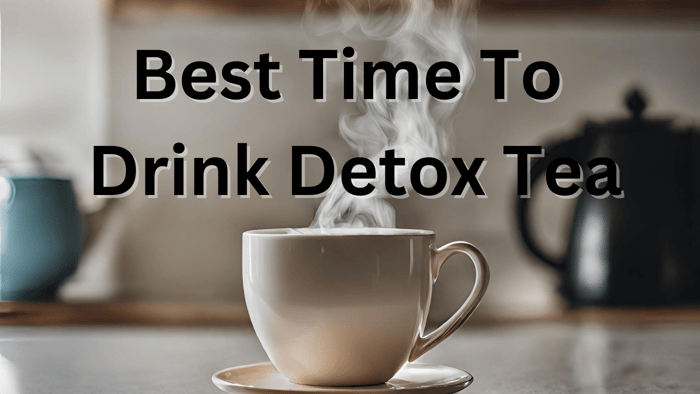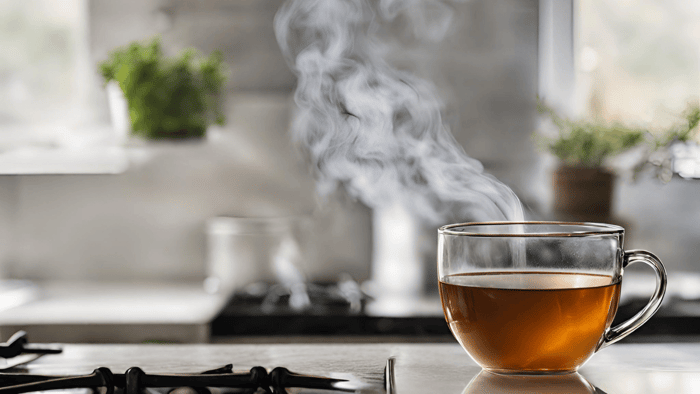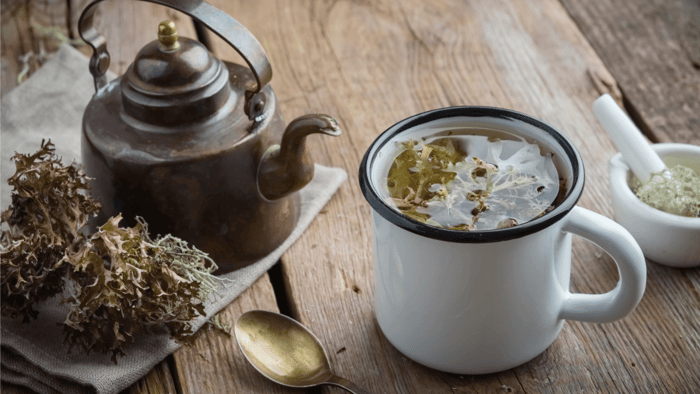Ah, tea – a beverage enjoyed by millions around the world for its delightful flavors, soothing aroma, and numerous health benefits. However, there’s one common issue that many tea drinkers face: bitterness. Have you ever brewed a cup of tea, only to be disappointed by an unpleasant bitter taste? You’re not alone. This blog post aims to help you understand “why does my tea taste bitter” and provide you with practical solutions to reduce bitterness and enjoy your tea to the fullest.
We will cover various aspects of tea, including the role of tannins and caffeine in bitterness, different types of tea, brewing techniques, choosing quality tea leaves, proper storage and preparation, and alternative ways to sweeten your tea without masking its natural flavors. Let’s dive in and embark on a journey to a more enjoyable tea-drinking experience!
Key Takeaways
-
Understanding sources of bitterness and adjusting brewing techniques can help reduce the bitter taste in tea.
-
Different types of tea possess varying levels of tannin, caffeine, and bitterness that can be managed through informed selections.
-
Alternative sweetening methods such as pairing with sweets or adding honey/fruit notes can balance herbal teas’ flavor profile to enhance overall taste.
Proper Frothing Helps - Try the Visp Elixir Mixer
Understanding the Bitterness in Tea
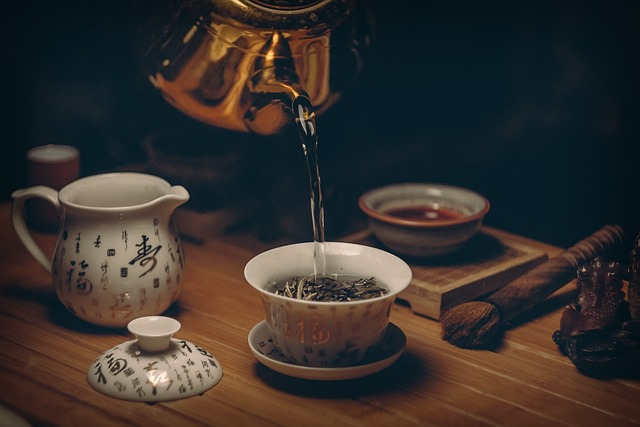
To begin, let’s identify the sources of bitterness in tea. The primary culprits are:
-
Tannins: a compound commonly found in tea, wine, coffee, and chocolate, and they can be responsible for making your tea taste bitter.
-
Caffeine: naturally present in tea, contributes to bitterness due to its natural bitter flavor.
-
The specific type of tea you’re consuming.
Understanding these sources of bitterness can help you adjust your brewing methods or choose teas that are less likely to taste bitter.
Different types of tea have varying levels of bitterness, with black tea having the highest tannin content. For example, certain green teas are intended to have a certain degree of bitterness, which imparts a more structured flavor and crisper taste.
Once we comprehend the main elements causing bitterness in tea, we can actively prevent it and enhance our tea-drinking experience.
Tannins and their role in tea bitterness
Tannins are plant polyphenols that are known to impart a roughness and dryness in the mouth, similar to the bitter taste of unripe fruit or dry wine. They are responsible for tea’s astringency and can cause bitterness if over-extracted.
Wondering how to minimize the extraction of tannins for a more enjoyable tea? It all comes down to the right brewing techniques. Brewing with lower water temperatures, shorter steeping times, and lower tea-to-water ratios can help reduce the tannin levels extracted from the tea leaves.
Modifying these factors enables us to savor the delightful flavors of tea, devoid of the excessive bitterness from tannins.
Caffeine's contribution to bitterness
As mentioned earlier, caffeine is inherently bitter, and the amount of caffeine present in tea is directly proportional to its bitterness. The primary antioxidants found in green tea, catechins, can produce a bitter or astringent taste and provide a drying or puckering sensation on the palate. This is why sometimes tea tastes bitter.
While it’s not possible to completely remove caffeine from tea, understanding its role in bitterness can help you make more informed choices when selecting teas. For example, you might opt for a tea with a lower caffeine content if you’re particularly sensitive to bitterness. Additionally, brewing your tea with the proper techniques, as discussed in the next section, can help reduce the extraction of caffeine and result in a more enjoyable tea experience.
Different types of tea and their bitterness levels
As we’ve learned, different types of tea have varying levels of bitterness due to their tannin and caffeine content. Green tea, for example, is more prone to bitterness due to its higher concentration of catechins.
Black tea, on the other hand, has the highest tannin content among all types of tea.
Grasping the distinct attributes of each tea type empowers you to make better choices when choosing and brewing your tea. For instance, if you prefer a less bitter tea, you might choose a white tea, which has lower tannin and caffeine content compared to black tea. Knowing your preferences and the differences between various teas can guide you toward a more enjoyable tea-drinking experience.
Brewing Techniques to Avoid Bitter Tea
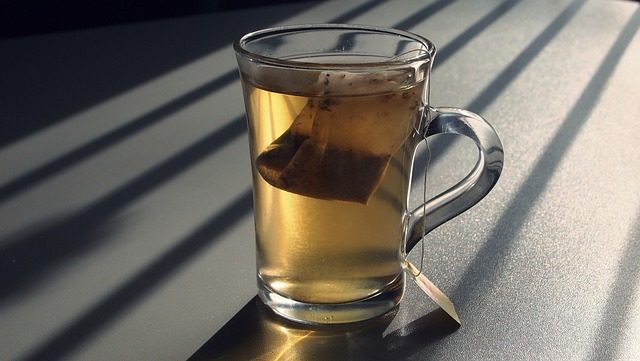
Having discussed the factors contributing to tea bitterness, let’s move on to brewing techniques that can prevent a bitter taste. The key lies in three main factors: water temperature, steeping time, and tea-to-water ratio. Modifying these elements allows you to bring out the delightful tea flavors without the domineering bitterness of excess tannins and caffeine.
In the following subsections, we’ll delve deeper into the importance of each factor and provide practical tips on how to optimize your brewing process to achieve a well-balanced, enjoyable cup of tea.
Water temperature
Using the correct water temperature for each type of tea can significantly reduce bitterness. For instance, the recommended water temperature for brewing green tea is 175F-180F (79 - 82 C). Brewing green tea at a higher temperature can result in a more astringent and bitter taste due to the over-extraction of tannins and catechins.
To cool boiling water to the appropriate temperature for green tea, you can either add a small amount of lukewarm water or pour the water between two vessels to expedite the cooling process. Being mindful of water temperature paves the way for a smoother, less bitter tea that accentuates the natural flavors of the leaves.
Steeping time
Adjusting the steeping time can have a significant impact on the flavor and bitterness of your tea. The longer tea is brewed, the more bitter compounds are extracted. For example, brewing green tea for a shorter period of time is the most effective way to reduce its bitterness.
Experimenting with steeping times can help you find the perfect balance between flavor and bitterness. Start with shorter steeping times and gradually increase the duration until you achieve your desired taste. Keeping an eye on steeping time lets you savor a well-balanced and more enjoyable cup of tea.
Tea-to-water ratio
The proper tea-to-water ratio is crucial for a well-balanced flavor without excessive bitterness. According to general guidelines, 3 grams of loose-leaf tea should be used per 8 ounces of water.
Using too much tea can result in an imbalanced taste with excessive bitterness due to the over-extraction of tannins. On the other hand, using too little tea can lead to a weak and watery flavor. Determining the correct tea-to-water ratio provides a delightful equilibrium between flavor and bitterness for a fully enjoyable tea experience.
Choosing Quality Tea Leaves
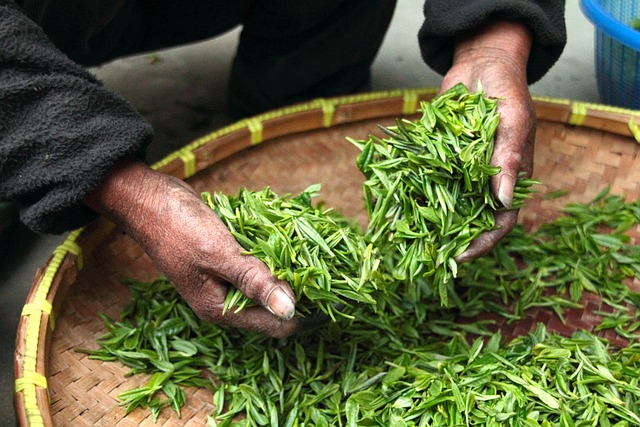
Selecting premium tea leaves is another key aspect in curtailing bitterness and enhancing the tea-drinking experience. Factors such as loose-leaf tea, tea cultivars, and harvest date and area can all impact the bitterness of tea.
In the following subsections, we’ll explore the importance of each factor and provide practical tips on how to choose quality tea leaves that will help you enjoy a smoother, less bitter cup of tea.
Loose-leaf tea vs. tea bags
Loose-leaf tea offers better flavor and less bitterness compared to tea bags. This is because loose-leaf tea is made up of whole leaves, while tea bags typically contain lower-quality leaves, referred to as “dust” or “tea fannings”.
Switching to loose-leaf tea for your tea hobby can significantly enhance your tea-drinking experience. Not only will you enjoy superior flavor and less bitterness, but you’ll also have the opportunity to explore a wider variety of teas, as loose-leaf tea often comes in a greater range of flavors and types than tea bags.
Tea cultivars and their impact on bitterness
Selecting tea cultivars with lower bitterness levels can improve the taste of your tea. Tea cultivars are cultivated varieties of the tea plant, Camellia sinensis, and each cultivar has its own individual characteristics and flavor profiles.
Getting acquainted with various tea cultivars and their bitterness levels empowers you to make smarter choices when selecting and brewing your tea. For example, Saemidori and Asatsuyu are known for their sweet flavor profiles. By choosing tea cultivars with lower bitterness levels, you can enhance the flavor of your tea and enjoy a more pleasant tea-drinking experience.
The importance of harvest date and area
The harvest date and area can impact the bitterness of tea. Here are some general guidelines:
-
Earlier harvests generally produce smoother tea.
-
Spring harvests typically produce teas that are delicate and sweet.
-
Summer harvests tend to yield teas that are more robust and bitter.
In addition to the harvest date, the area in which the tea is cultivated can also influence its taste and quality. The climate, soil conditions, and altitude of the tea-growing region can all contribute to the taste and quality of the tea. Mindfulness about the harvest date and area allows you to choose teas with a higher likelihood of a smoother, less bitter taste.
Proper Tea Storage and Preparation
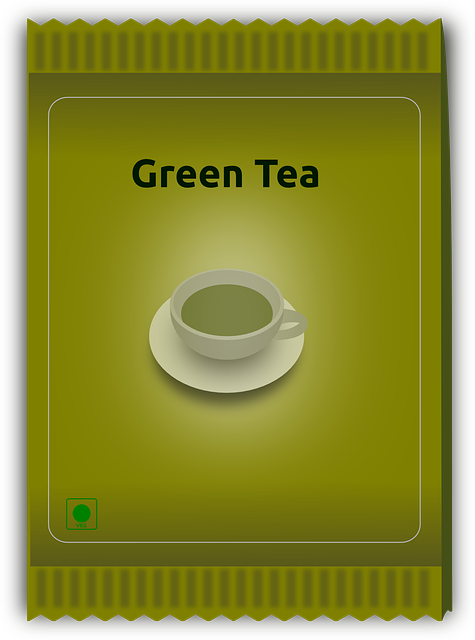
Proper tea storage and preparation play a crucial role in maintaining the flavor and reducing bitterness in your tea. Factors such as storing tea correctly and using high-quality water can significantly impact the taste of your tea.
In the following subsections, we’ll explore the importance of each factor and provide practical tips on how to properly store and prepare your tea to ensure optimal flavor and minimal bitterness.
Storing tea correctly
Storing tea in airtight, light-blocking containers in a cool, dark place helps preserve flavor and prevent bitterness. Exposure to air, moisture, and light can all negatively affect the quality of your tea, leading to flavor loss and increased bitterness.
Proper tea storage guarantees its freshness and flavor for a prolonged period. This will allow you to enjoy the delightful flavors of your tea without the unpleasant bitterness that can result from improper storage.
Preparing tea with high-quality water
Preparing tea with filtered or bottled water can improve the taste and reduce bitterness. Poor-quality water may contain contaminants that can change the taste of the tea, resulting in a bitter or unpleasant flavor.
Utilizing high-quality water for your tea preparation can elevate the flavor and diminish bitterness. This simple change can make a big difference in the overall enjoyment of your tea-drinking experience.
Alternative Ways to Sweeten Your Tea
If you still find your tea to be a bit bitter after implementing the techniques and tips discussed above, there are alternative ways to sweeten your tea without masking its natural flavors. Some options include:
-
Pairing tea with sweets, such as cookies or pastries
-
Adding honey or agave syrup to your tea
-
Infusing your tea with fruit flavors, such as lemon or berries
These methods can help balance the bitterness and enhance the overall tea flavor of your herbal teas, while also offering health benefits.
In the following subsections, we’ll explore these alternative sweetening methods and provide practical suggestions on how to enjoy your tea without bitterness.
Pairing tea with sweets
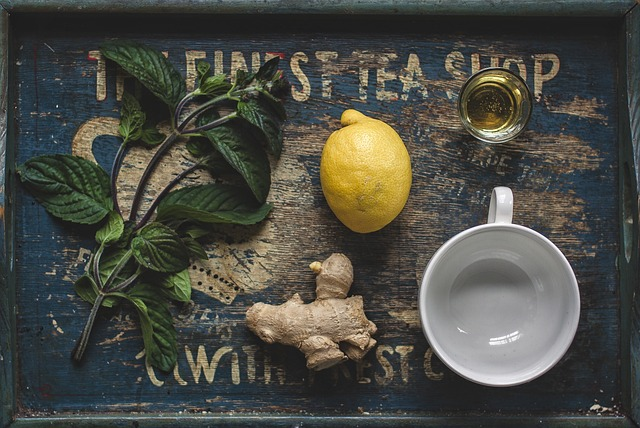
One way to offset the bitterness of your tea is to pair it with sweets. For example, traditional Japanese sweets like wagashi, mochi, and yokan are often enjoyed alongside a cup of tea. By balancing the bitterness of the tea with the sweetness of the sweets, you can enjoy a more pleasant and well-rounded tea-drinking experience.
Experiment with different pairings to find the perfect match for your taste preferences. Whether you prefer a sweeter Japanese green tea with a less sweet wagashi or a robust tea with a rich, flavorful yokan, there’s a perfect pairing out there for every tea lover among the variety of Japanese green teas.
Adding honey or fruit notes
Another option to sweeten your tea without masking its natural flavors is to add honey or fruit notes. Some options include:
-
Basswood honey
-
Holly honey
-
Eucalyptus honey
-
Citrus honey
-
Blueberry honey
These can be used in combination with herbal or fruit-flavored teas to add a touch of natural sweetness. Additionally, you can add fruit juice, such as apple juice, orange juice, pomegranate juice, or cranberry juice, to provide additional sweetness without overpowering the tea’s inherent flavors.
Feel free to experiment with various combinations to discover your desired flavor. Enjoy your beverage, knowing that you’ve successfully reduced bitterness and enhanced the flavors of your tea.
Summary
In conclusion, reducing bitterness in tea is a matter of understanding the factors that contribute to bitterness and implementing practical solutions to address them. By adjusting brewing techniques, choosing quality tea leaves, storing and preparing tea properly, and exploring alternative sweetening methods, you can enjoy a more pleasant and well-balanced cup of tea.
Now that you’re equipped with the knowledge and tools to tackle "Why does my tea taste bitter", it’s time to put these tips into practice and savor the delightful flavors of your favorite teas without the bitter aftertaste. Happy tea-drinking!
Frequently Asked Questions
How do you get the bitterness out of tea?
Adding a small amount of baking soda to the tea is an effective way to reduce bitterness. Honey and other natural sweeteners can also help reduce undertones and improve flavor. Allowing the tea to steep for 1 minute then removing the bag is also beneficial.
Is it OK to drink bitter tea?
Bitter tea is actually good for your health, as it contains polyphenols and antioxidants. Thus, it is perfectly okay to drink bitter tea.
Why does my tea taste like bitter water?
The bitterness in your tea may be due to hard water or a buildup of contaminants on your teapot. Try using spring water and thoroughly clean your kettle to see if it improves the taste.
What does green tea taste like?
Green tea has a complex flavor profile, characterized by grassy, vegetal, earthy, and flowery notes that vary depending on the type of tea and brewing method.
What is the difference between loose-leaf tea and tea bags?
Loose-leaf tea is composed of whole leaves for a richer, more flavorful experience, while tea bags contain lower-quality leaves that often result in a bitter cup.
Try the Elixir Mixer—our electric whisk bottle—crafting a diverse range of hot and cold drinks is streamlined. Fill it up, press the button, and 15 seconds later—get sipping. It will quickly become the MVP of your everyday rituals.
